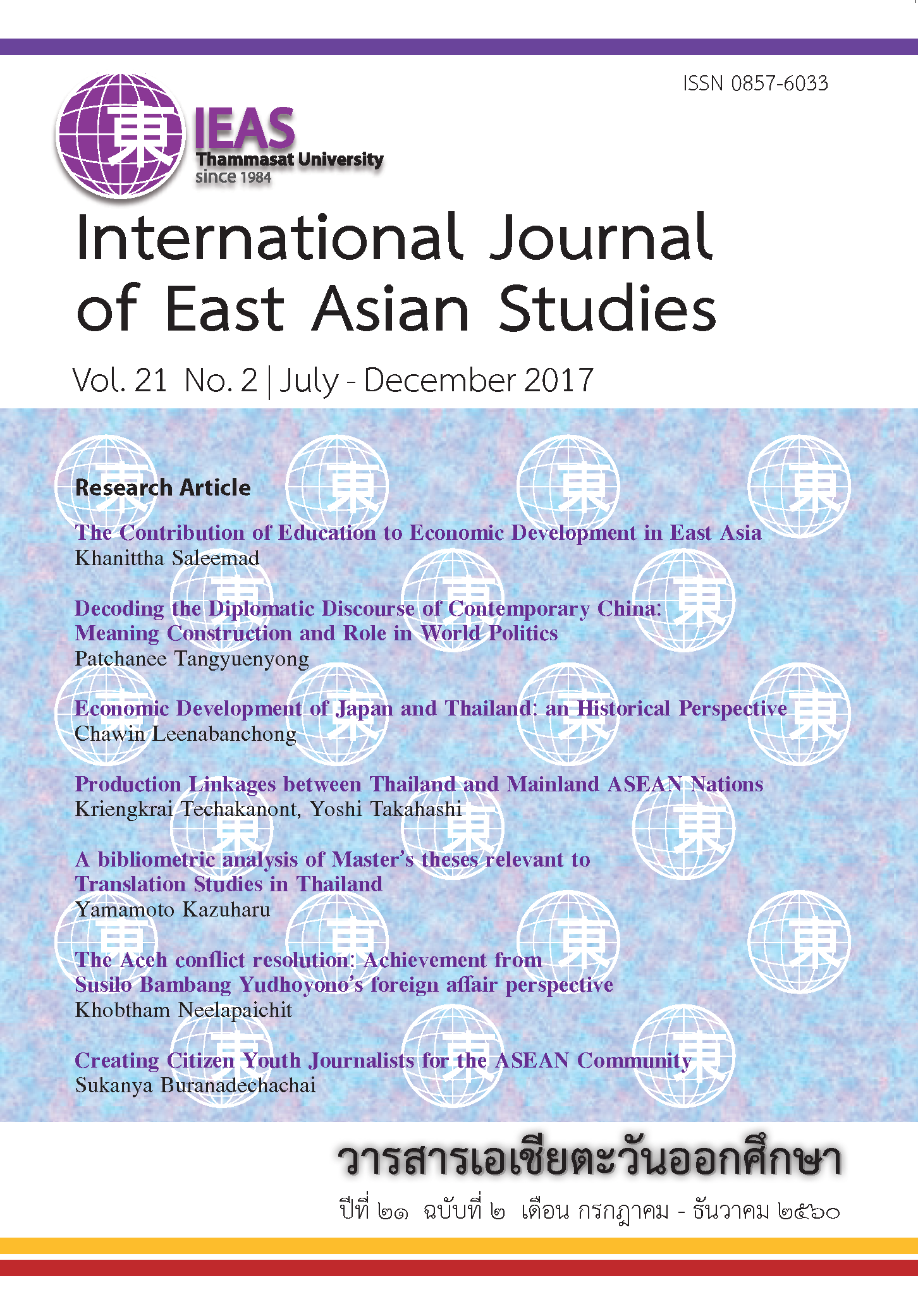Decoding the Diplomatic Discourse of Contemporary China: Meaning Construction and Role in World Politics
Abstract
This research paper aims to examine the discourse of diplomacy in the speeches of Chinese President Xi Jinping by means of the Critical Discourse Analysis approach. The key finding is that the speeches of President Xi Jinping construct two main discourses, i.e. development discourse and security discourse, by using linguistic strategies in two ways: 1) on-record politeness strategies such as modesty, promises, expressions of concern, and slogans, and 2) off-record politeness strategies such as metaphors, association clues, intertextuality, aphorisms and presuppositions. These diplomatic discourses represent three main functions: 1) the identity function, portraying China as a peace-loving nation in order to obtain trust from the global community, 2) the relational function, including three types of relations concerning China, which leads to legitimacy in formulating foreign policy, and 3) the ideational function, which reproduces “the Harmonious World,” the dominant ideology of Chinese society to create stability for the world so that China can sustain continuous growth.



